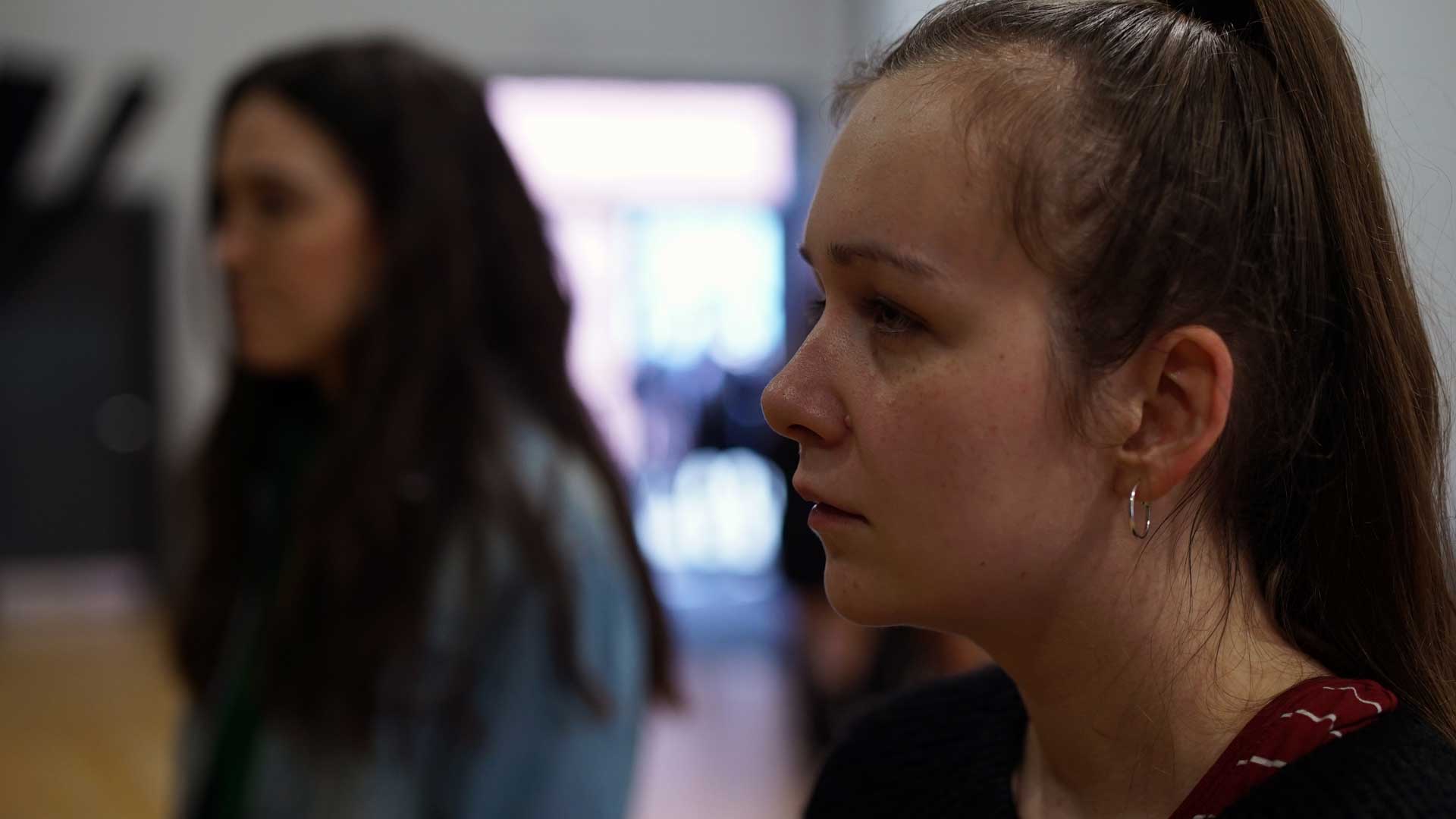
A Spiralling Mind Online
Our volunteer Lauren reflects on the impact she witnessed during our online interactive mental health film workshops.
I’m sure all of us have experienced some form of dip within our mental health during the COVID-19 pandemic, and if not know of someone who has. Statistically at least 1 in 5 of us are affected in our lifetime, and no one can avoid it. Within this blog, I will be discussing challenging issues around mental health so please assure you are in a safe space and mindset before reading.
During Odd Arts’ online interactive workshop, ‘A Spiralling Mind’, we explored what mental health is, how we should be aware that your mood and mental health can change and how it can have many effects on us physically and emotionally such as eating disorders, self-harm, suicide, anxiety, panic attacks and/or depression; as well as the additional physical impact each of these can bring with them.
The facilitator encouraged the young people to answer questions and share their opinions with the exercises, ‘Myths and Facts’ which opened a safe discourse space. They were asked things such as, ‘Why is it important to talk about?’, ‘What can be done to help?’ and ‘Men have better mental health than women’ (AGREE/DISAGREE… discuss). This sparked a variety of different opinions such as, ‘Men can hide it well, they want to keep it in’. Odd Arts emphasised that the biggest cause of death for men in their 30’s is suicide’ encouraging people to consider how useful hiding it away is, instead of talking openly or seeking support. The wider discussions also produced questions from the young participant’s such as, ‘If depression stays with you [more than a day], why do people say it will go away? Which enabled the facilitators to normalise feelings such as sadness, grief, fear, ensuring people knew this was ok; explaining the difference between depression and feeling sad, and also reiterating that depression is not necessarily permanent and there are many things that can be done to support recovery. Young people were asked to remember that thoughts are not permanent.
Moving on from the discussion, we were shown a pre-recorded film (photo below) about three young people dealing with different types of mental health problems and the issues that surround them within their lives, as we transitioned into a COVID lifestyle and a national lockdown in March 2020. The young people after watching, were asked ‘How do you now feel physically and emotionally after?’ (a common theme through the workshop was to ‘take notice’ of ourselves). Participants noticed an elevation in their heart rate; felt emotional for the character; tense or slumped – reminding us that our body can react to things we see or hear, and emphasised to the young people that we should be aware of our body and put in extra care for ourselves when we recognise physical warning signs we may be stressed / upset. The young people pointed out the different effects mental health had on the people in the film and they suggested that the reasons a person may self-harm could be to create physical pain so they can feel something, or to take away the pain to make them feel numb. The young people stereotypically thought that for a person to self-harm they must cut themselves, but the facilitator highlighted that there are many other forms including burning, scratching or pulling out hair out for example.

In the next part of the workshop the participants interacted with the characters, and as they became comfortable they began offering advice and guidance to the character. This was beneficial as the students participating in the workshop not only interacting with the characters, but with each other talking about what they do to keep themselves happy. They talked about websites and apps available to talk to new people and make friends; student services within the school; meditation; therapy or counselling to talk about your feelings to someone who is outside of the situation. Some of them suggested it felt ‘awkward’ or ‘weird’ to talk to someone and that they would have to truly trust them. One student offered up music advice to the character, for when they were in a particular mood; to relieve anger, stress/anxiety, sadness and so on. As the session was drawing to a close, the actors came out of character to remind them that the character’s they were communicating with were acting, so that the participants don’t go on to worry about them and acknowledge that it was acting. The facilitators and actors also reminded students that although these were actors, within the Odd Arts teams they had experience of mental ill health and therefore no judgement was given and the characters were people they could relate to. A student spoke out emphasising that the session had ‘definitely been helpful’. My own opinion is that we aren’t talking about this enough in society which is increasing what a ‘taboo’ it is. The facilitator presented various different support lines. The young people were left with a the 5 steps to wellbeing, ‘Be active, keep learning, connect, take notice, give and be open, listen’ and encouraged them to find their own interpretation of this. With all this in mind, I believe we should all try to listen to your body and mind more and prioritise our own ‘positive steps to wellbeing’.
Written by Lauren Bridge, volunteer for Odd Arts